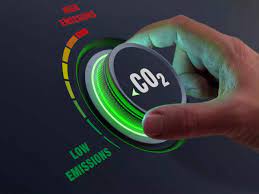Carbon markets and India

The Lok Sabha has passed the Energy Conservation (Amendment) Bill, 2022, last month (August 2022), clearing the way for establishing carbon credit markets.
According to the government, in addition to helping India achieve its climate goals, the Bill ensures that about 50 percent of installed electric power capacity is generated from non-fossil sources by reducing the emissions intensity of GDP (that is, the volume of emissions per unit of GDP) by 45 percent. This Bill amends the 2001 Energy Conservation Act, which was last revised in 2010.
India promised to reach zero carbon emissions by 2070 and reduce its emissions by one million tonnes in the next 10 years at UN’s COP26 summit in November 2021. Establishing a carbon credit market is the first step toward this goal.
A latest report from Deloitte Economics Institute discussed that India should act now to prevent the country from losing $35 trillion in economic potential over the next 50 years due to unmitigated climate changes. The report also reveals how the country could gain $11 trillion in economic value over the same period by limiting rising global temperatures and realising its potential to export decarbonization.
India companies and their participation

Indian companies have already been participating in the global carbon market- through one of three modes — carbon neutrality, Renewable (RE 100), and Science Based Targets (SBT).
RE100 and SBT categories relate to companies that work to lower their emissions directly by reducing their dependence reliance on activities that are harmful to the environment. While businesses that practise carbon neutrality, invest in carbon offsets to achieve an equivalent decrease.
What will carbon markets in India mean for India Inc?

With carbon markets formally in place in India, industrial units which surpasse the emission criteria will be eligible to receive credits. Also, struggling units will be able to purchase credits and demonstrate compliance. Simply speaking, a carbon market will create incentives to reduce emissions or improve energy efficiency.
Well, India understands carbon market. What is required? There is a need for regulatory frameworks and policy guidelines that provide clear mandates on emission reductions.




